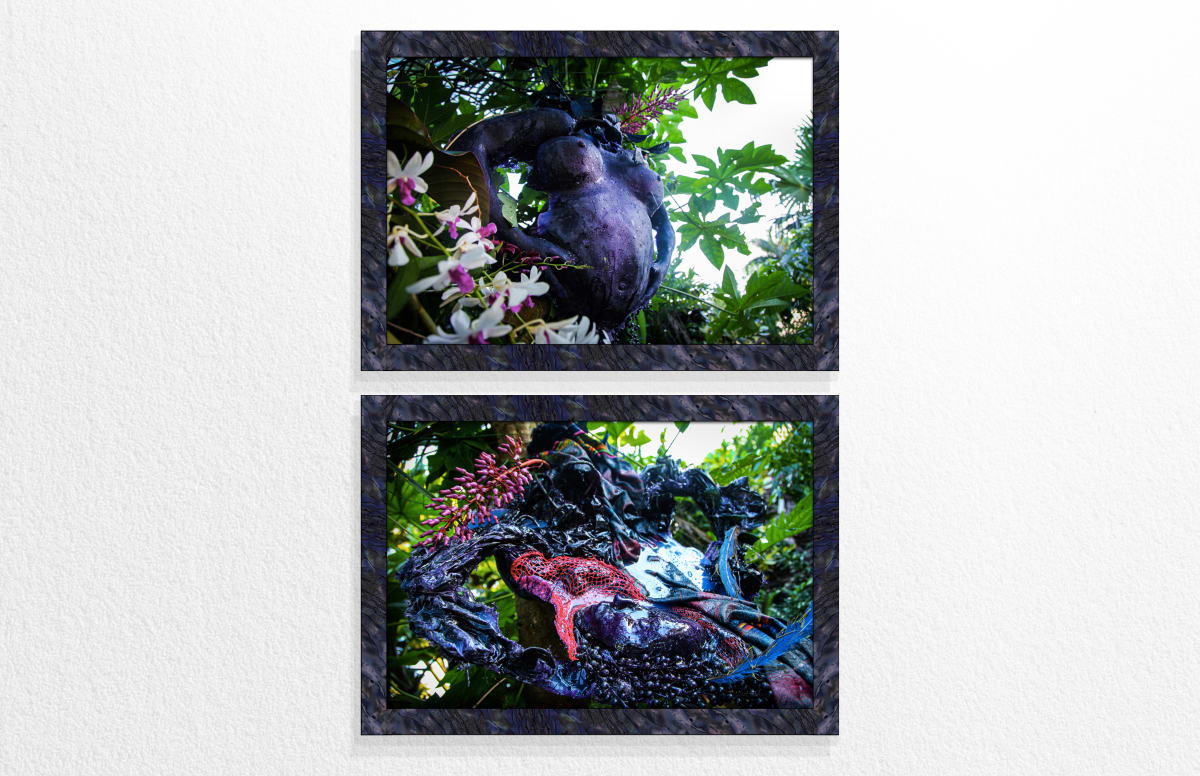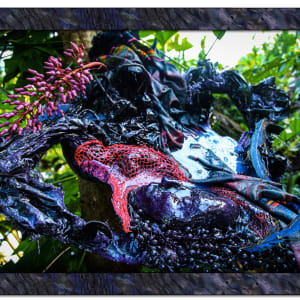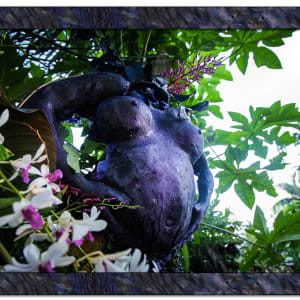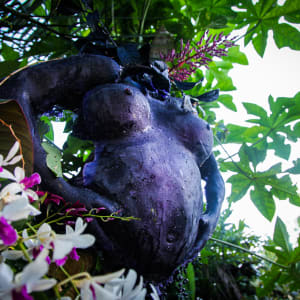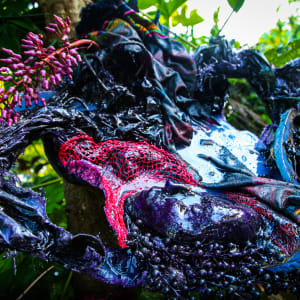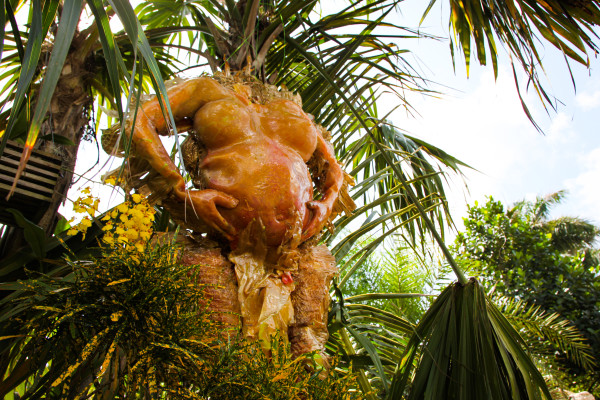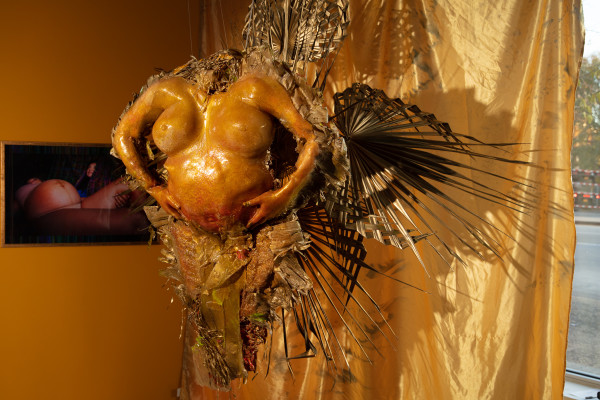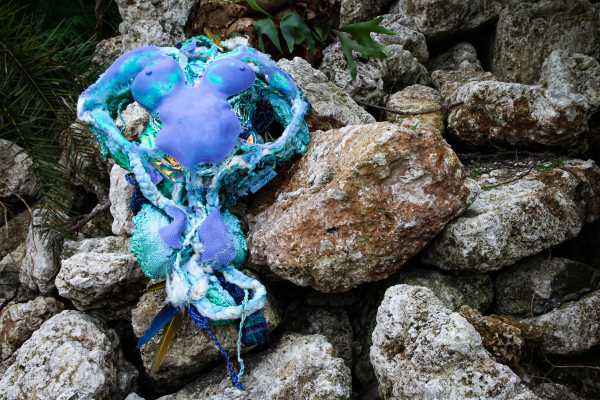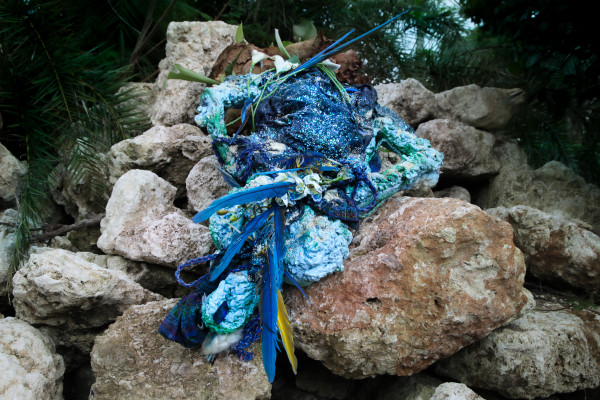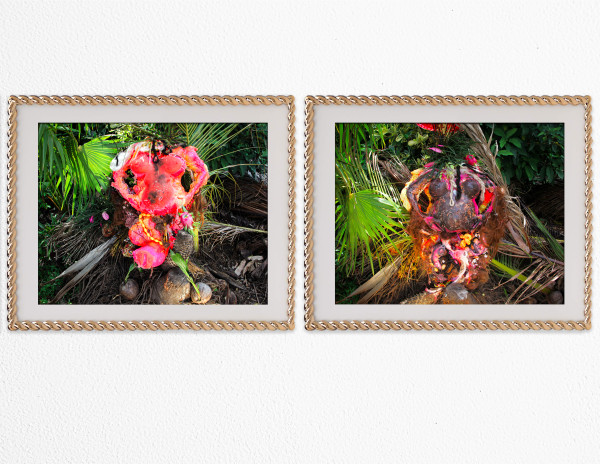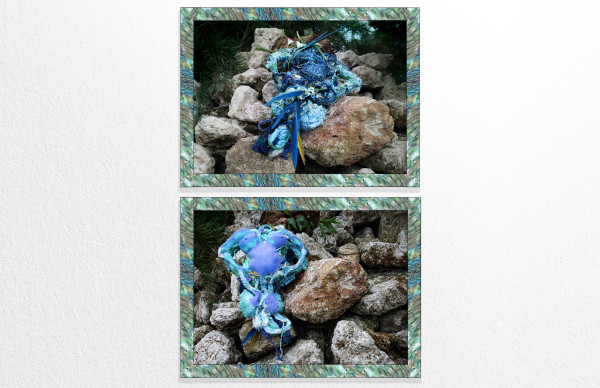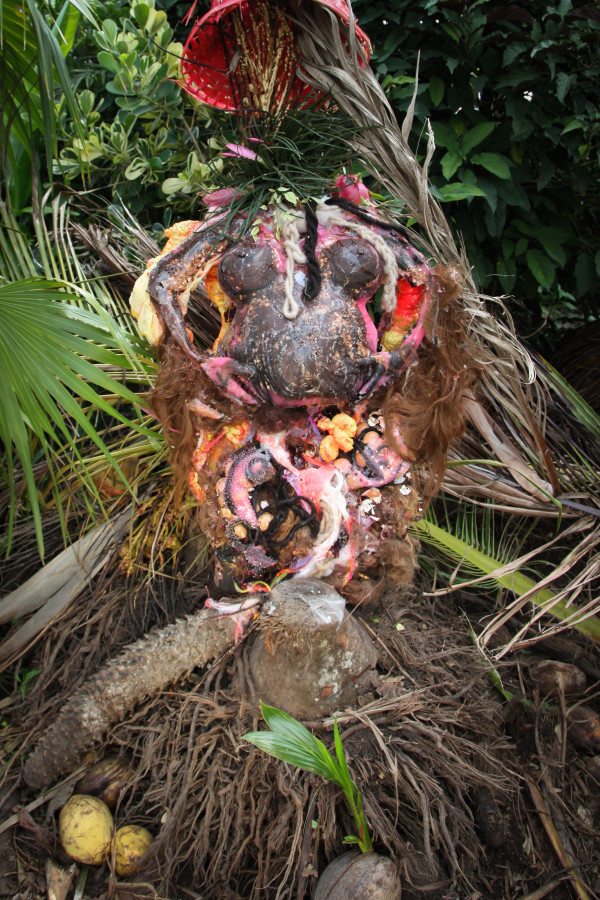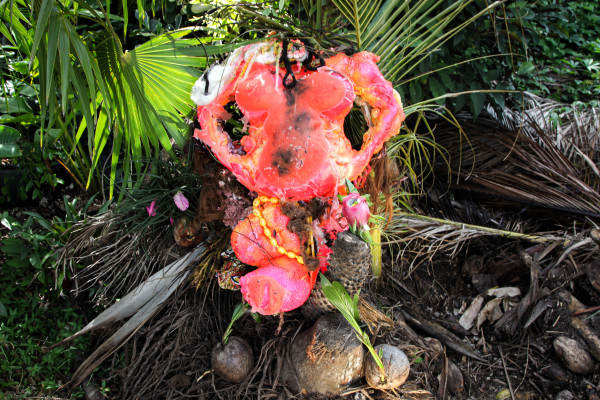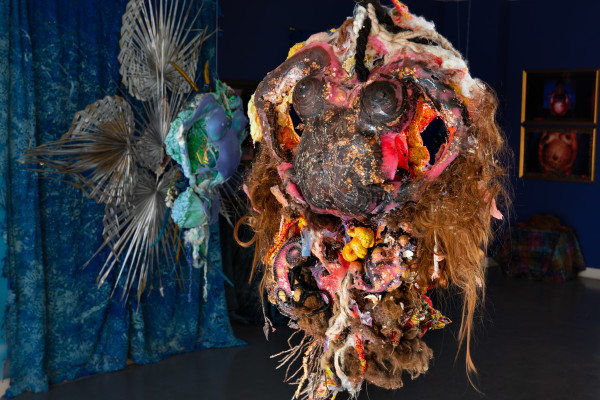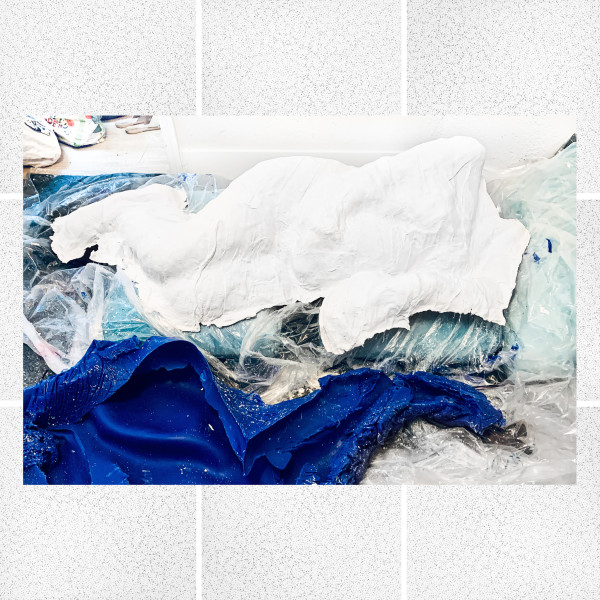Luna Negra (Black Sails) obscures a slurry of intimate ephemera and environmental waste into a cast of domestic construction materials. A discarded fruit sack veil serves as a surgical mesh for the artist's purple face, nested within the uterus of a blackened, pregnant body cast with tropical foliage and fake funerary flowers. Emerging as a loincloth from it's birth canal, a vintage Mexican serape drizzles periwinkle liquid through the figure, reflecting the overcast sky beyond. Reflecting on the life and death cycles depicted in ancestral liberation mythologies, the sculpture is simultaneously a figure and a landscape alarming and alluring the viewer to the travails of Global South fertility. The diptych is an extant retablo within its endemic, tropical habitat. The materiality of maternity conjures moonlight reflecting on the ocean: an eerie reminder of the irregular tides of tropical gentrification that threaten Miami's most vulnerable neighborhoods populated by Black and Brown families.
Mother Mold sculptures document the birthing justice crisis in the Americas, combining materials representing diasporic communities that are disproportionately impacted by overlapping healthcare and climate crisis. Intimate ephemera and environmental waste is cast into a slurry of domestic construction materials in the shell of a pregnant Mother Mold torso made in the Mama Spa Botanica in collaboration with reproductive health leaders and BIPOC families. The Mother Mold of Catherine was cast with her arms akimbo, bearing the weight of the world and her offspring with her hands beneath her belly. Black Sails is the title of an Edward Kamau Brathwaite poem from his book of "Mother Poems".
- Created: September 03, 2021
- Collections: Linea Negra photographs

